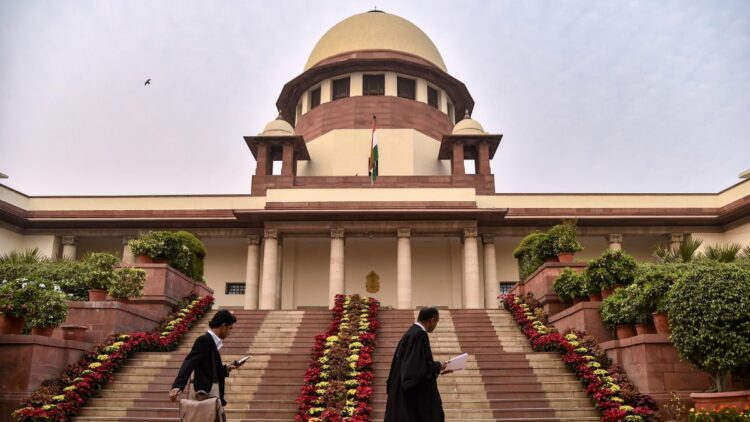Supreme Court
The hearing in the Supreme Court on Waqf Act 2025 has been completed. After three days of marathon hearing, the bench of Chief Justice BR Gavai and Justice AG Christ has reserved the verdict. The court had said during the hearing that the Waqf Act 2025 could be interim -interim. Now the court will decide in its decision whether to be stayed or not. During the hearing in the Supreme Court, all the parties made their arguments.
During the hearing, many questions were also asked by the court. The petitions filed against the Waqf Board were advocated by Kapil Sibal. At the same time, Solicitor General Tushar Mehta made arguments on behalf of the central government in favor of the law.
Arguments against Waqf law
Rajiv Dhawan: Waqf is an institution close to the Muslim community. We can see that Waqf is associated with the entire life and socio -economic life of Muslims. The Supreme Court also has a decision. According to the Vedas, temples are also not compulsory parts for Hinduism. There, there is a provision to worship nature, there are gods of fire, water, rain. There are mountains, oceans etc.
Kapil Sibal
According to some basic principles of Islam, Waqf also has to dedicate to God. For the hereafter. Once Waqf, always remains. The CJI said that charity is also a fundamental principle for other religions. Sibal said that this idea here is different from others. This is a donation given to God. Here dedication is to God. The donation is for the community. Future means for death. So that Allah takes care of me after death. As far as the endowment of Hinduism sites is concerned, non -Hindus are not involved. But as far as Waqf is concerned, non -Muslims are not included here. Four persons have been reservation for non -Muslims. According to me, there is a lot of one. Why is this act not secular. Its clarification is received from the Act itself. Section 3C aims to change the revenue entry, I will remain in possession and I will not be evicted but no concrete rights will be given. Is there no need to determine this? That it is government property. Revenue records can be changed when it is determined that it is government property. This provision is unconstitutional. There is no time limit for investigation. It can also take 6 months or more. By then the right of Muslim society will end with that property. There is no process of determining whether that property is of Waqf or not. The government has to decide only, after determining the revenue records can also be changed. The process of determination is not determined. This is completely arbitrary.
Arguments in support of Waqf law
Solicitor General Tushar Mehta
If after the final hearing, the court feels that the law is unconstitutional then the court can cancel it. But if the court stops the law from the interim order, and during this time no property goes to Waqf, it will be difficult to get back. Because Waqf belongs to Allah, it will not be easy to get the one who went to Waqf. Making Waqf and donating to Waqf are different. This is the reason that 5 years of practice has been needed for Muslims, so that Waqf is not used to cheat anyone. Suppose I am a Hindu and I want to donate for Waqf, even if I can be donated to Waqf. The Supreme Court has said in one of its decisions that Waqf is a kingdom in itself under Article 12 of the Constitution. In such a situation, it cannot be argued that it will include people of any one community.
Latest india news










